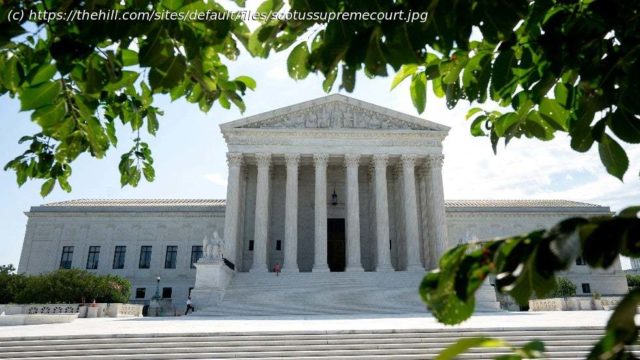The Supreme Court on Wednesday upheld the Trump administration’s expansion of ObamaCare birth control exemptions for employers, marking the third time in about a …
The Supreme Court on Wednesday upheld the Trump administration’s expansion of ObamaCare birth control exemptions for employers, marking the third time in about a week that the court has issued decisions broadening religious rights.
Two of the three cases were decided Wednesday by a 7-2 margin. Those majorities included two liberal justices — one of whom was nominated by former President Obama — as well as the court’s ideological center, Chief Justice John Roberts, suggesting religious protections enjoy durable support on the bench.
“The majority of justices on the Supreme Court have increasingly treated religious liberty rights as of greater importance and weight than other fundamental constitutional and civil rights,” said Katherine Franke, a law professor at Columbia University. “When they are asked to adjudicate conflicts between religious liberty and other fundamental rights, they have consistently ruled that religious liberty supersedes other rights.”
The White House and many conservatives, especially Christians, were buoyed by the recent decisions that further solidified legal protections for the nation’s faith-based communities, especially after the court dealt a series of blows to Republican causes this term.
“As the Supreme Court has previously stated, protecting the ability of people to worship and live according to the dictates of their conscience is part of ‘the best of our traditions,’” White House press secretary Kayleigh McEnany said Wednesday. “The Court’s decision today carries forward that noble tradition.”
But critics, who say the trend reflects the conservative court’s excessive regard for religious interests, fear Wednesday’s rulings will leave countless women without affordable contraception while further eroding the separation of church and state.
In a blistering dissent from the ObamaCare majority ruling, Justice Ruth Bader Ginsburg said the Trump administration’s far-reaching exemptions clash with Congress’s intent under the 2010 Affordable Care Act to subsidize female employees’ contraception.
“Today, for the first time, the Court casts totally aside countervailing rights and interests in its zeal to secure religious rights to the nth degree,” Ginsburg wrote in her dissent, which was joined by Justice Sonia Sotomayor.






